LONDEN (ANP) - Michael van Gerwen (36) heeft eenvoudig de derde ronde van het WK darts in Londen bereikt. De drievoudig wereldkampioen won in het Londense Alexandra Palace met 3-1 van de Ier William O'Connor. Van Gerwen kwam vrijwel geen moment in de problemen tegen O'Connor. Mighty Mike gooide bij vlagen weer als vanouds en kende alleen in de derde set een inzinking.
Van Gerwen speelt in de derde ronde tegen de Duitser Arno Merk. "Ik heb lekker gespeeld. Ik ben blij dat ik er na de kerst nog in zit", zei Van Gerwen na afloop bij Viaplay.
De Nederlandse darters Niels Zonneveld, Wesley Plaisier, Kevin Doets, Gian van Veen en Jermaine Wattimena slaagden er net als Van Gerwen in zich bij de laatste 32 te voegen.
Van Gerwen verloor vorig jaar in de finale van Luke Littler. Het was de zevende keer dat hij in de eindstrijd stond.
Het WK darts vindt plaats in Alexandra Palace in Londen. Het toernooi begon op 11 december en de finale wordt gespeeld op 3 januari.
NEW YORK (ANP) - De aandelenbeurzen in New York zijn dinsdag hoger gesloten. Beleggers reageerden op meevallende cijfers over de Amerikaanse economie. Daaruit kwam naar voren dat de economie van de Verenigde Staten in het derde kwartaal met 4,3 procent is gegroeid, de grootste groei in twee jaar.
De cijfers moesten eigenlijk al eerder naar buiten komen, maar de publicatie werd uitgesteld vanwege de shutdown van de Amerikaanse overheid. ING-econoom James Knightley noemt de cijfers "een fantastisch resultaat". Hij verwacht echter dat de groei in het huidige kwartaal waarschijnlijk aanzienlijk trager zal zijn, mede door de gevolgen van de wekenlange shutdown.
De Dow-Jonesindex steeg 0,2 procent tot 48.442,41 punten. De brede S&P 500-index eindigde 0,5 procent hoger op 6909,79 punten. Daarmee bereikte de S&P 500 een nieuwe recordslotstand. Techgraadmeter Nasdaq klom 0,6 procent naar 23.561,84 punten.
Beleggers verwachten dat de kans op een renteverlaging door de Federal Reserve begin 2026 kleiner is geworden door de meevallende groeicijfers. Verder werden dinsdag cijfers over het consumentenvertrouwen in de VS gepubliceerd. Daaruit bleek dat het consumentenvertrouwen in december voor de vijfde maand op rij is gedaald tot 89,1, tegen 92,9 in november.
Techaandelen waren erg in trek onder beleggers. AI-chipconcern Nvidia steeg 3 procent. Branchegenoot Broadcom won 2,3 procent.
Farmaceut Eli Lilly daalde 0,5 procent. De Deense concurrent Novo Nordisk kreeg toestemming van geneesmiddelenautoriteit FDA om een pilversie van zijn afslankinjectiemiddel Wegovy op de Amerikaanse markt te brengen. Dat zou in januari moeten gebeuren. Novo Nordisk heeft daarmee een voorsprong op Eli Lilly, dat ook aan een pil werkt van zijn obesitasmiddel Zepbound. Die zou in maart in de VS moeten verschijnen.
Electronic Arts (EA), bekend van games als EA Sports FC en The Sims, klom 0,2 procent. De aandeelhouders hebben ingestemd met de overname van EA ter waarde van 55 miljard dollar door een groep investeerders, waaronder het Saudische staatsfonds PIF. EA verdwijnt door de overname van de beurs.
Woensdag is Wall Street een halve dag open in aanloop naar kerstavond. Op eerste kerstdag blijven de aandelenbeurzen in New York dicht. Vrijdag, op tweede kerstdag, wordt wel gehandeld in New York.
Markus Branse has added a photo to the pool:
Nightstorm, Arnhem Highway, Wetlands, Northern Territory, Australia
Markus Branse has added a photo to the pool:
Nightstorm, Arnhem Highway, Wetlands, Northern Territory, Australia
The profession has been decimated: an estimated 200 full-time lexicographers worked in the US 25 years ago, and Fatsis believes that number is "probably closer to thirty" today. "By the time I finished this book," Fatsis writes, "it wasn't clear how long flesh-bone-and-blood lexicographers would be needed to chronicle the march of the English language."
Merriam-Webster is now owned by Encycloaedia Britannica, another print-era giant that stopped publishing physical volumes in 2012. The company's free website draws about a billion page views annually, but the content has shifted dramatically -- word games, trending slang and ads dominate rather than lexicographic depth. The scale of the challenge facing dictionaries is staggering. One study of digitized library books found the English lexicon grew from about 600,000 words in 1950 to over a million by 2000, and concluded that 52% of English words in printed books are "lexical dark matter" that appears in no standard reference work.
Read more of this story at Slashdot.
[...] A 6K 3D display isn't the only notable upgrade coming to Samsung's lineup; the company is launching the Odyssey G6 G60H, which it says is the "world's first" 1,040Hz gaming monitor. The 27-inch monitor only supports this ultra-fast refresh rate in HD, while its native 1440p resolution still offers speeds up to a very fast 600Hz. It's also compatible with AMD FreeSync Premium and NVIDIA G-Sync.
Read more of this story at Slashdot.

For finding a good book, there is no substitute for going into your local independent bookstore and browsing what’s on the front tables, the bestsellers shelf, and the staff picks. But bookshop.org is an amalgam of online sales some of the best indie bookstores in the country (and websites like kottke.org), so the list of their bestselling nonfiction books for 2025 is pretty darned good. Here are a few from the list that I’ve featured (or should have featured) here this year:
- The Serviceberry by Robin Wall Kimmerer.
- Careless People by Sarah Wynn-Williams.
- One Day, Everyone Will Have Always Been Against This by Omar El Akkad.
- Everything Is Tuberculosis by John Green.
- Good Things by Samin Nosrat.
- Let This Radicalize You by Kelly Hayes & Mariame Kaba.
- Bad Company by Megan Greenwell.
- Liftoff by Casey Johnston.
- Black AF History by Michael Harriot.
Bit too late to order in time for the holidays, but there are also bookshop.org digital gift cards.
Tags: best of · best of 2025 · books · lists
Customers will be able to see vulnerabilities, prioritize risks, and close them with automated workflows.
After over a week of speculation, ServiceNow announced on Tuesday that it has agreed to buy cybersecurity heavyweight Armis in a $7.75 billion deal that will see the workflow giant incorporate a real-time security intelligence feed into its products.…
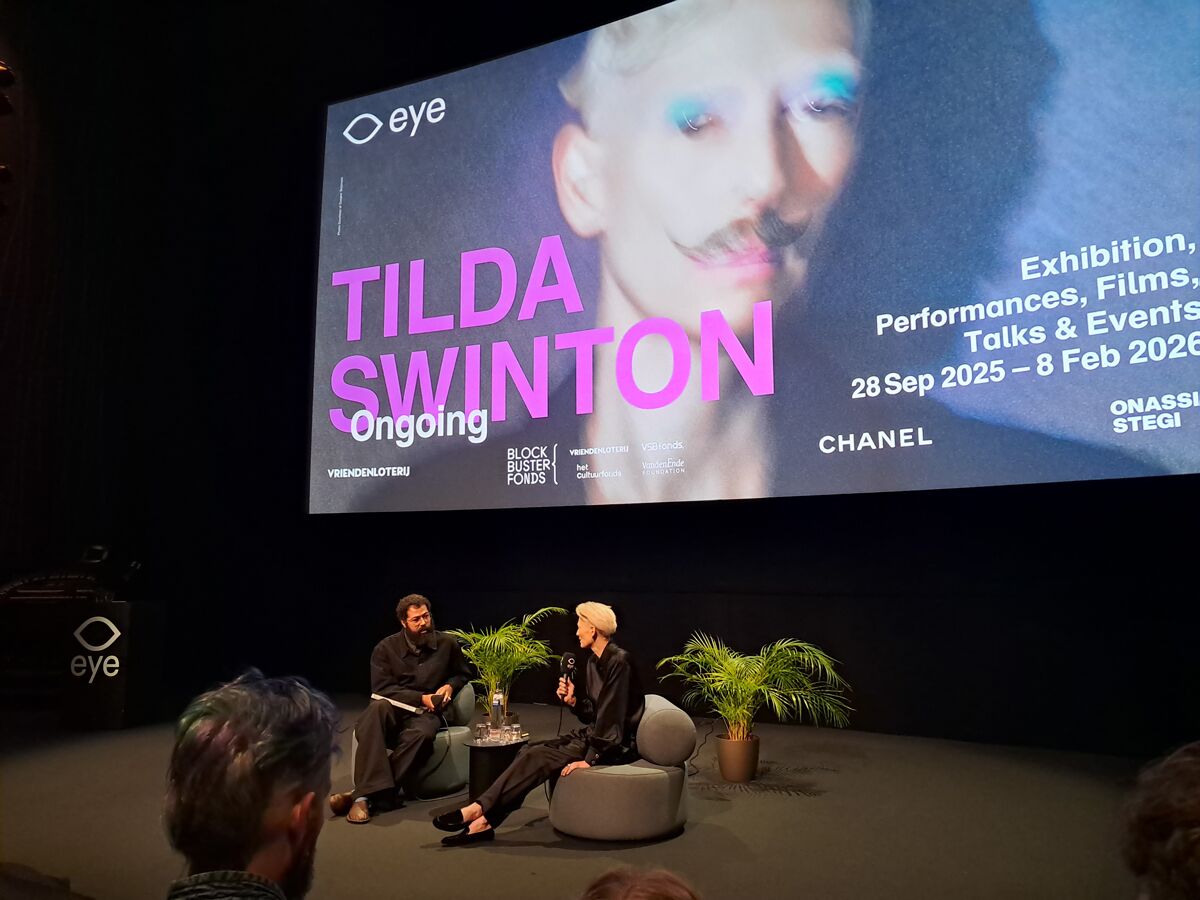
EYE Filmmuseum is de volgende culturele instelling volop in de media vanwege benarde financiële situatie en daaruit volgende reorganisatie en 30 ontslagen. Journalisten duiken weer op het vinden van ‘de schuldige’ en smullen van het citeren van naar elkaar wijzende geïnterviewden met de gebruikelijke opmerkingen over wangedrag, slecht management en beleid, ik wist van niets, zwarte dozen, niet transparant zijn enzovoort.
Beetje vermoeiend bedenk ik me de volgende kopie lezend van een 6 pagina lang artikel wat ik krijg toegestuurd. Heeft de media niets anders om zich druk over te maken, is er niets aan de hand in de wereld wat consequenties heeft voor onze toekomst?
Wat zeggen die artikelen nou eigenlijk? Kosten zijn enorm gestegen, inkomsten zijn hetzelfde gebleven of verlaagd. Niet zo heel veel anders als mijn huishoudboekje door veranderende politieke en sociale regelgeving en beleid 2 decennia geleden ingezet door de VVD van Rutte die van grote invloed zijn op werk, welvaart en welzijn. Als we het er niet mee eens zijn mogen we het ons allemaal aanrekenen dat we ons in de afgelopen 20 jaar hebben laten verleiden om mee te gaan rennen met de rat race in het kapitalisme. Ondernemen, diversificatie van inkomsten, risico’s nemen, hoge salarissen en uurtarieven, veel welvaart zonder na te denken dat de keerzijde is dat dit welzijn verminderd. Er zijn consequenties aan het veranderen van kunst en cultuur naar een commerciële industrie in plaats van een veld dat van belang is voor het sociale weefsel van de gemeenschap. Die consequenties ervaren we nu…
Het vraagt om realiteitszin en veranderingen, soms is dat wat ik lees dat EYE deed, deels wat opvangen met je reserves, of daarmee een gok nemen en iets (horeca/Swinton) gaan doen om te zien of je daardoor meer inkomsten kan realiseren. Dat heeft bij EYE terugkijkend op de afgelopen 5 jaar blijkbaar niet goed uitgepakt en heeft een groot deel van hun reserves opgeslokt (voor de duidelijkheid er is dus geen tekort!). Men zit nu op de blaren en bind in om niet alle reserves kwijt te raken. Dat heet ondernemen en dat is wat de VVD van Rutte als opdracht meegaf aan het culturele veld, culturele instellingen moesten bedrijven worden en daar dealen we dus nu mee. Dit is het resultaat van 20 jaar veranderd beleid voor het culturele veld naar de anno 2025 culturele industrie. Soms groeit een bedrijf, soms krimpt het en soms gaat het ter ziele. Bedrijven krijgen nieuw management die gooien dan alles overhoop dat gaat soms goed en soms niet, er komen altijd lijken uit de kast dat is lullig, maar te verwachten.
De reorganisatie is in gang gezet. Zullen we ze gewoon tijd en ruimte geven om het op te lossen en wachten op zomer 2027 als de jaarrekening en financiële verantwoording en evaluatie over 2026 gepresenteerd wordt? Aan de hand daarvan kunnen ze met de nodige zelfreflectie hun volgende kunstenplan 2029- 2032 aanvraag schrijven. Hierin dan ter beoordeling aansprekende voorbeelden en wapenfeiten 2025-2028 waaruit het belang van EYE kan blijken en ook in de toekomst nog ondersteuning verdient.
Ondertussen is de kerstvakantie begonnen en kan eenieder die EYE en wat daar gebeurd een warm hart toedraagt de TILDA SWINTON tentoonstelling en filmprogramma gaan bezoeken. SWINTON is een uitgebreid programma met een tentoonstelling, performances, talks, events, en een filmprogramma met films door haar gekozen en/of gemaakt door makers die allemaal onderdeel zijn van ‘haar gemeenschap’, ‘haar tribe’.
In de wereld waar het individualisme hoogtij viert, probeert SWINTON het tegenovergestelde te laten zien. Langdurige en intense samenwerkingen en vriendschappen, dat is waar het om draait in deze tentoonstelling door en om SWINTON heen. Het laat zien, voelen en maakt duidelijk waar ik zelf ook rotsvast in geloof en op vertrouw, alles draait om gedrevenheid, passie en… mensen. Zorgvuldig opgebouwde langdurige samenwerkingen, onvoorwaardelijke vriendschappen.
Een groep mensen, een hechte gemeenschap, die elkaar ondersteunen, kritisch bevragen, vertrouwen, aanvullen, tegenhouden, voortduwen, lachen, huilen en boos kunnen zijn, en er altijd zijn voor elkaar ook als ze er niet zijn. Door en met elkaar zijn ze hun beste zelf, samen ‘zijn’ ze. Vertalen ze hun artistieke urgentie in kunst. Zijn ze de personen van projecten die we kennen en waarvan we een aantal hier zien. Projecten die we wellicht nooit gezien hadden was het niet voor hun samenwerking waar ze elkaar uitdaagden, ruimte gaven voor experiment, onderzoek, ‘trial en fail’ opnieuw en opnieuw, en waar ze elkaar blijven inspireren om grenzen op te zoeken en elkaar voortstuwen.
Natuurlijk komen de opmerkingen: ‘ze heeft makkelijk praten met haar commerciële succes’ en in het gesprek tijdens de persconferentie merk je dat SWINTON zich ook realiseert dat het voor haar en wat ze vertegenwoordigt, anno 2025, moeilijk is om geloofwaardig te zijn dat haar succes en de waarde van het leven en haar carrière in haar vriendschappen en in haar hart volgen zit. Je voelt haar frustratie daarover maar ook haar passie om het wel duidelijk te maken dat ze wil inspireren en ons uitnodigt om in navolging van hen hetzelfde te doen, het individualisme en competitie los te laten en te investeren in menselijkheid, langdurige intense samenwerkingen en vriendschappen, dat daar de werkelijke waarde van het leven zit.
Wij als publiek kennen vaak (en willen vaak ook) alleen maar de successen zien / horen / weten. Iedereen kent pijn en mislukkingen in het leven, wie beweert van niet die heeft geen hart en ziel, of heeft niet geleefd, en daar zal geen tentoonstelling aan gewijd worden.
‘TILDA SWINTON’ in EYE viert de halve eeuw lange samenwerkingen en vriendschappen van een groep creatieven die de wereld, wanneer we hen ontmoeten door/in hun projecten, op dat moment een beetje beter maken door hun kunst. Ons aan te spreken, te beroeren, te bevragen, en na te laten denken! En ja, in dit geval zijn er een aantal (incluis Swinton) die daar zeer goed uitgekomen zijn, maar we zien ook Derek Jarman, de filmmaker waar ze mee begon, die ze (samen met vele andere vrienden) op jonge leeftijd verloren is aan AIDS.

Tilda Swinton, Apichatpong Weerasethakul

Tilda Swinton, Derek Jarman






Tilda Swinton, Jim Jarmusch


Tilda Swinton, Joanna Hogg

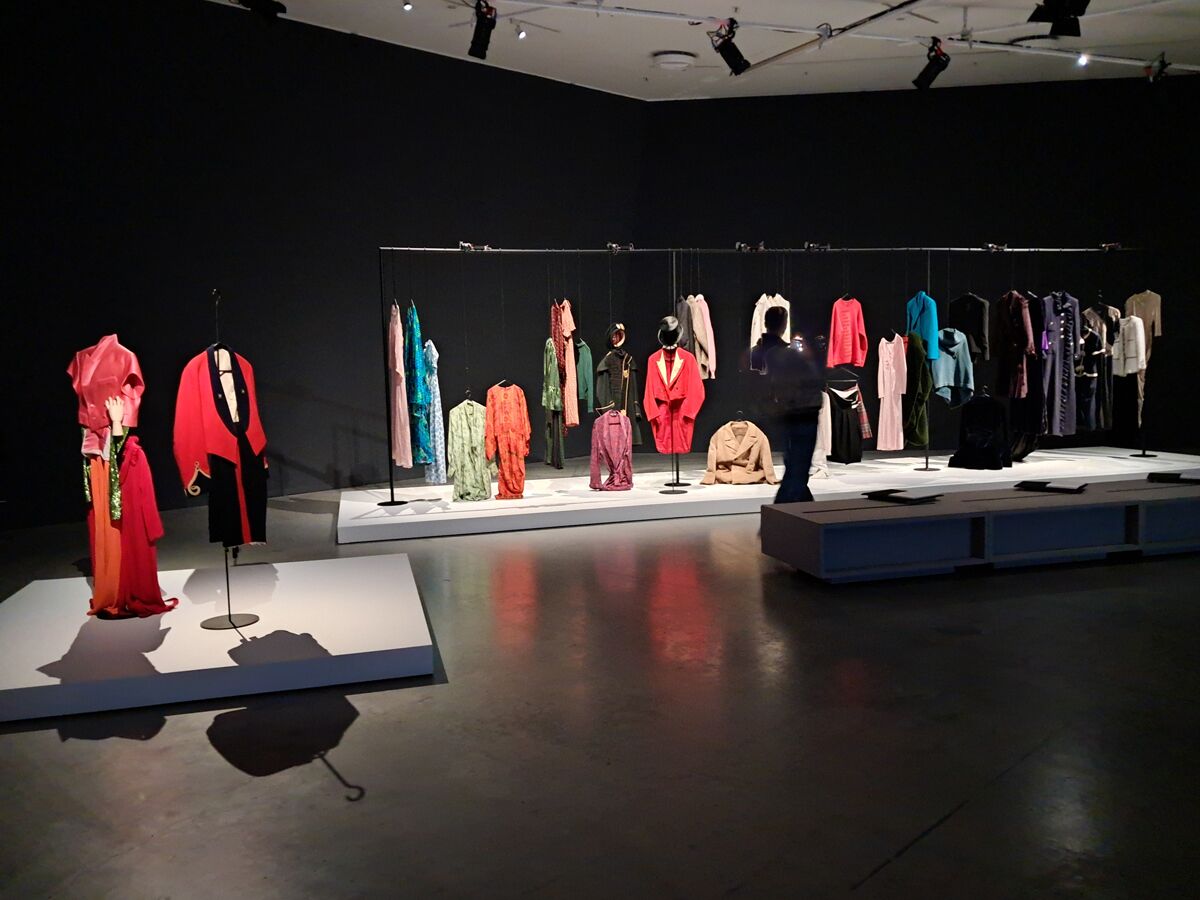
Tilda Swinton, Olivier Saillard
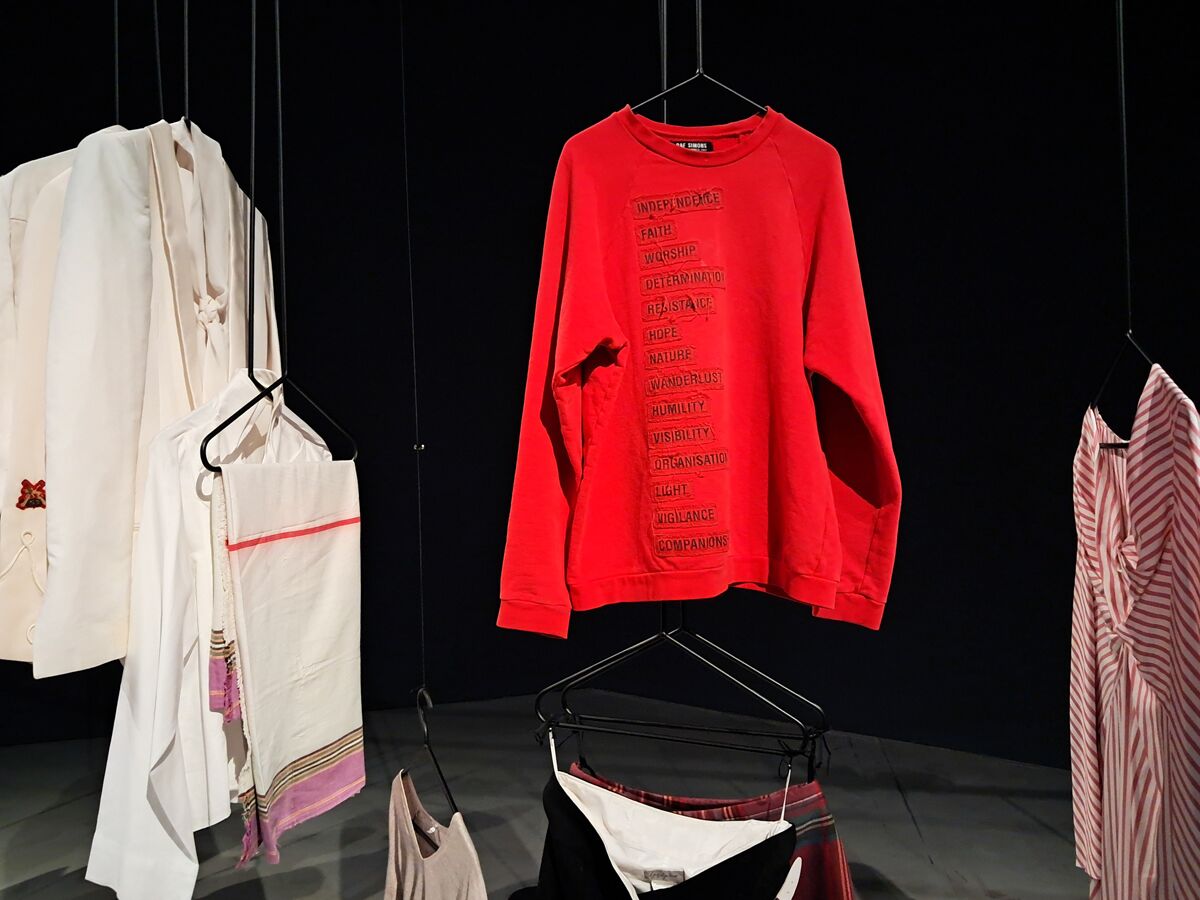

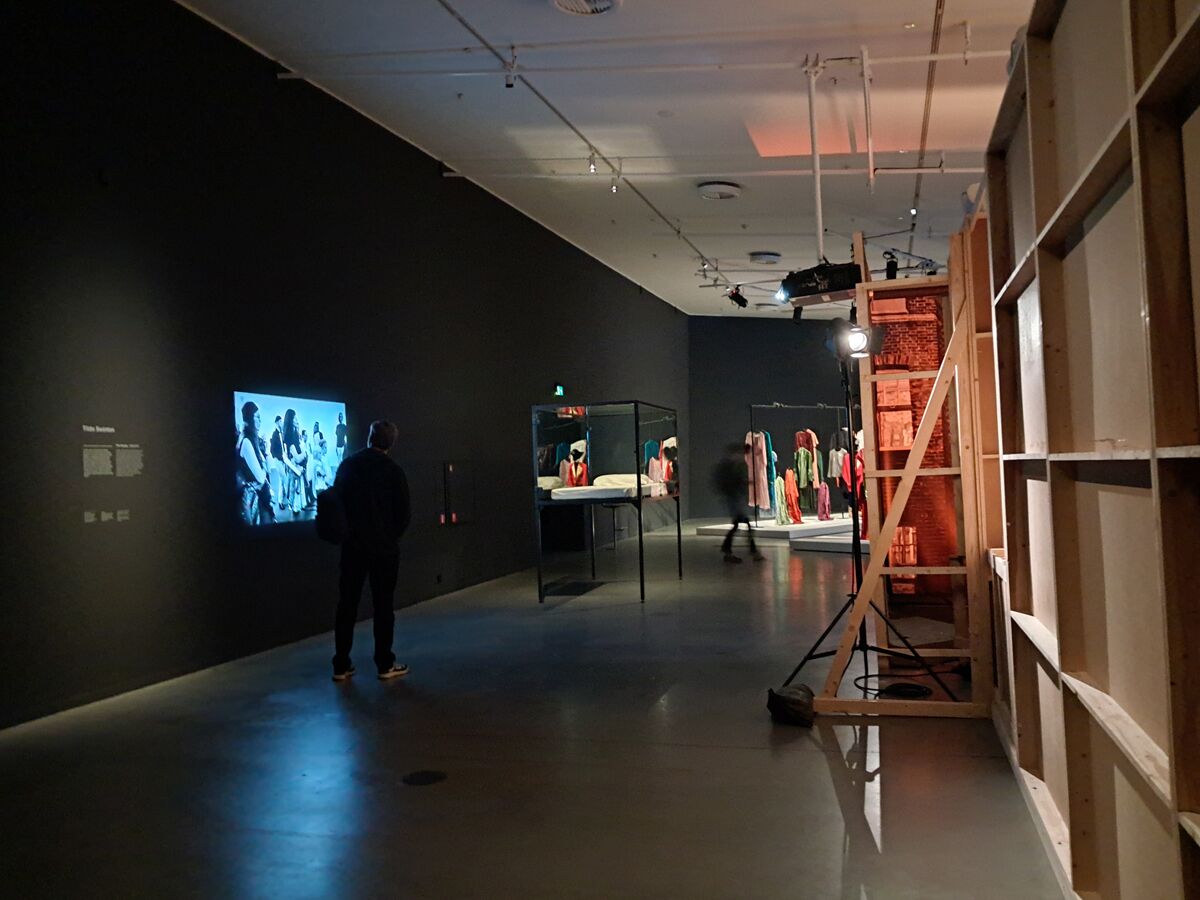
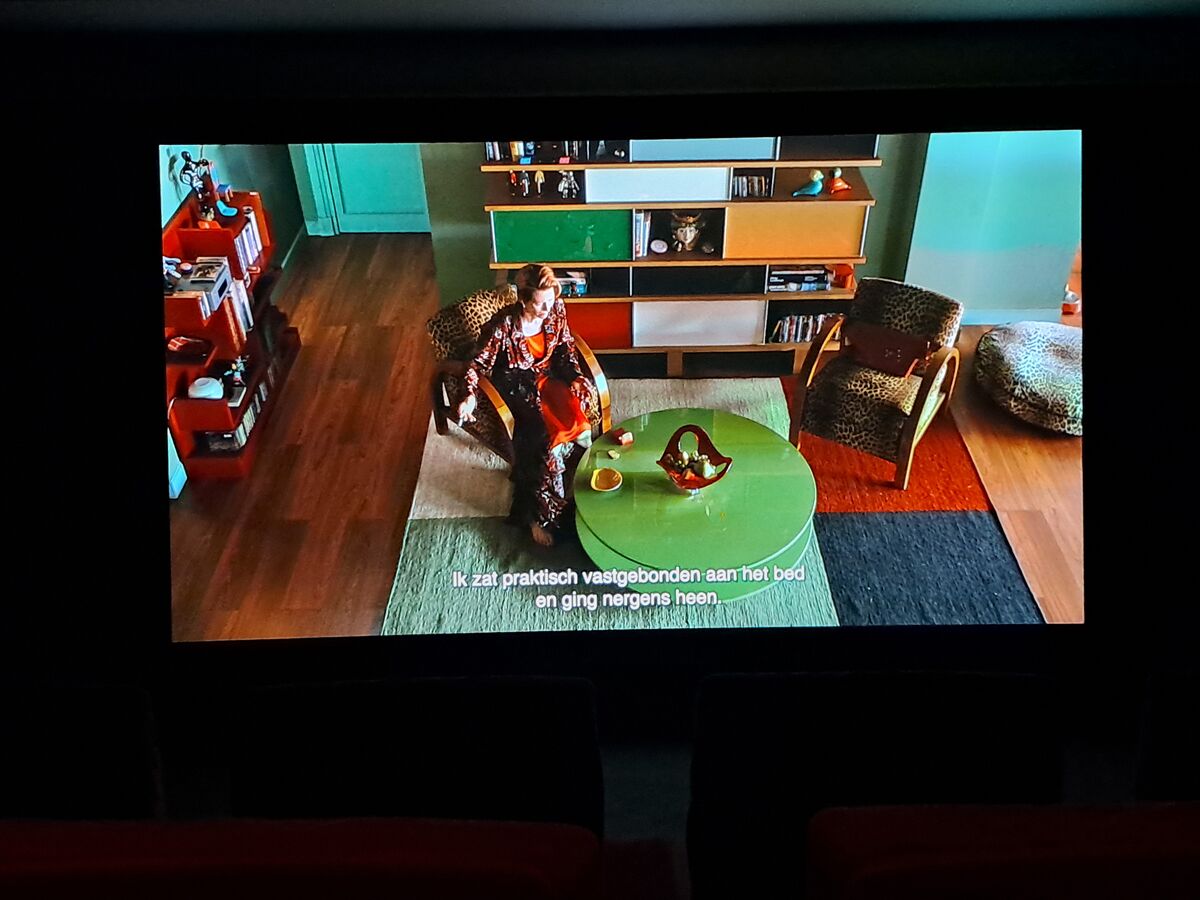
Tilda Swinton, Pero Almodovar
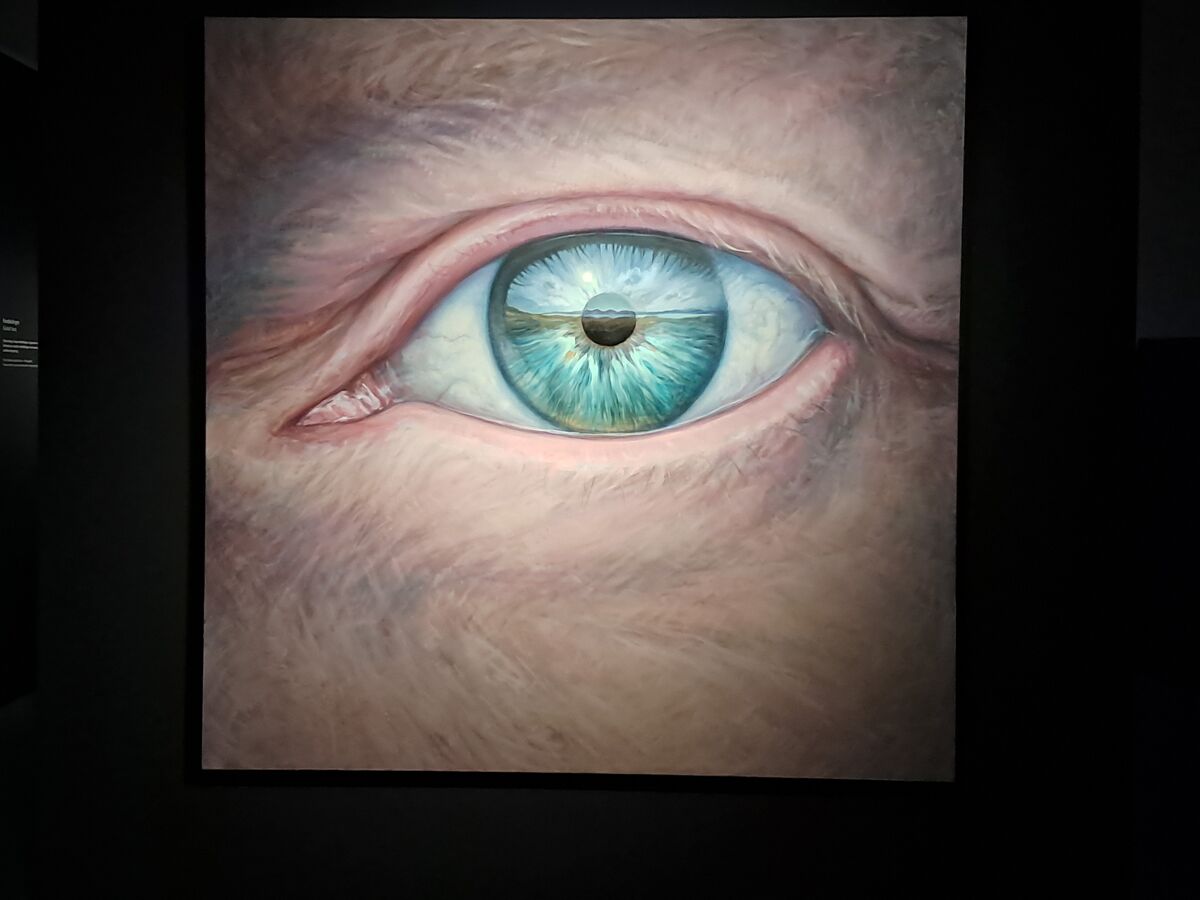
Tilda Swinton, Sandro Kopp
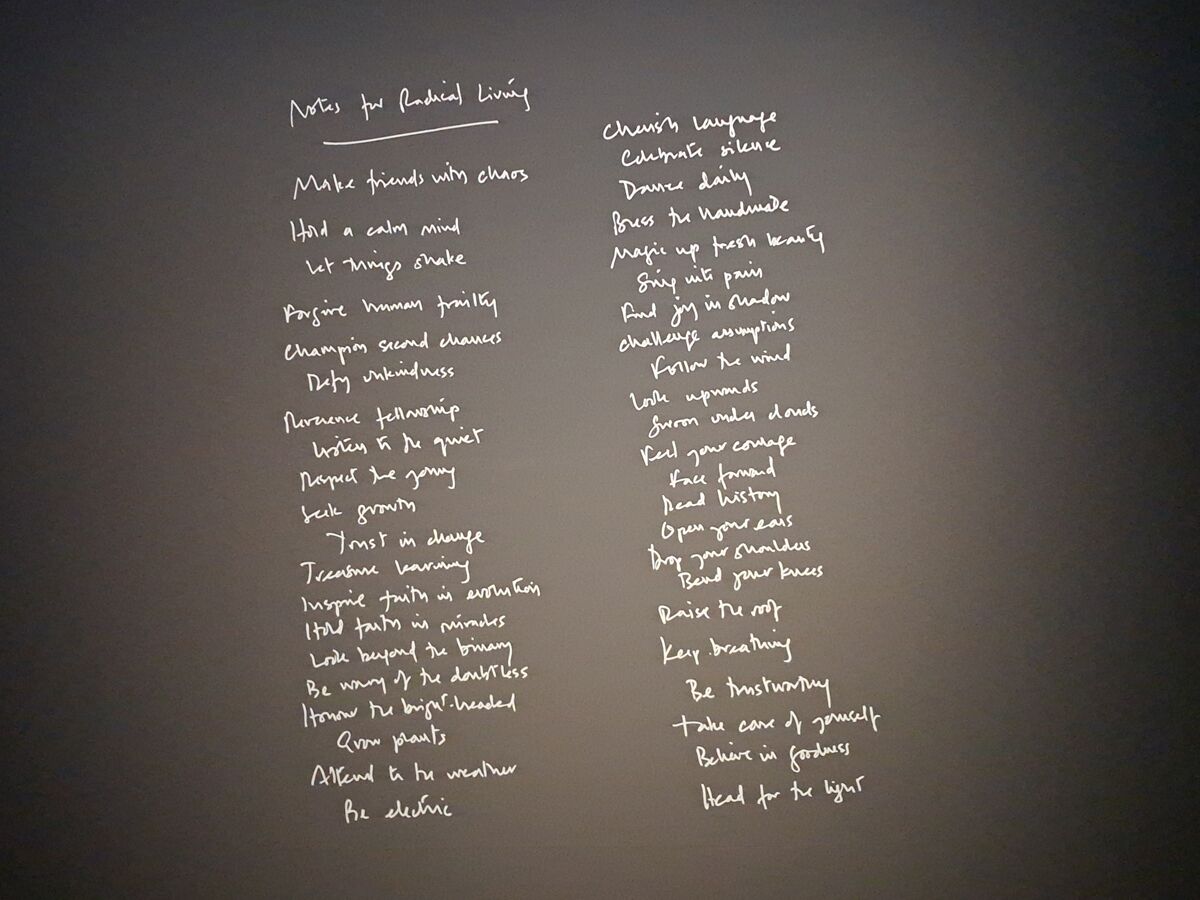

- Tilda Swinton, The Maybe
DEELNEMENDE VRIENDEN:
Apichatpong Weerasethakil, Derek Jarman, Jim Jarmusch, Joanna Hogg, Luca Guadagnino, Olivier Saillard, Pedro Almodovar, Sandro Kopp, Tilda Swinton en Tim Walker.
NOG TE ZIEN/ERVAREN TOT EN MET 8 FEBRUARI
Tilda Swinton: Tentoonstelling, Performances, Films, Talks & Events
EYE Filmmuseum, IJpromenade 1, Amsterdam
W: https://www.eyefilm.nl/en/programme/tilda-swinton/1473850












